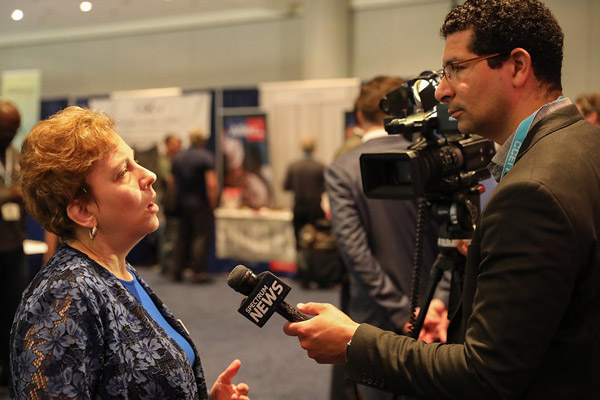Why Do New York Cultivators Have An Oversupply of Cannabis?
Editor’s note: This is an ongoing story. We will update this blog as new information and updates come to light.
New York’s slow licensed dispensary rollout has affected cultivators with ample amounts of ready-to-sell product. With too much biomass and not enough licensed processing or retail capacity, many farmers feel frustrated that they have nowhere to legally sell their wares.
As New York’s Conditional Adult-Use Retail Dispensary (CAURD) program restarts and the state welcomes multi-state operators (MSOs) with open arms, could that problem soon change? Here’s a closer look at the challenges facing New York’s cannabis farmers and the ongoing attempts to provide them with support as the state’s cannabis industry continues to evolve.
A growing problem in New York’s cannabis industry
New York’s cannabis farmers have been sounding the alarm on oversupply since June 2023, after 300,000 pounds of cannabis was cultivated but without enough manufacturers to create product or retail capacity to offload it all. Many were already scaling back operations, growing fewer cannabis plants than legally permitted due to concerns about the ability to sell it.
“We are really under the gun here. We’re all losing money,” Seth Jacobs, a New York cannabis farmer, told the Associated Press. “Even the most entrepreneurial and ambitious amongst us just can’t move much product in this environment.”
The oversupply problems stem from the state’s sluggish cannabis industry rollout, which has been far slower than initially anticipated. Fortunately, the pace has quickened in recent months. According to the New York State Office of Cannabis Management (OCM), 48 licensed adult-use cannabis dispensaries have opened statewide, up from 26 in November 2023. While there is hope the rapidly expanding capacity could be enough to alleviate the oversupply, farmers remain in a tight spot until these retail operations ramp up.
Legal roadblocks have only created further challenges for the state’s farmers. Many of the currently operational retail locations were authorized under New York’s CAURD program, which prioritizes social equity applicants and “justice-involved” individuals. That program was frozen due to a court injunction issued in the wake of a lawsuit alleging the CAURD program’s prioritization of justice-involved applicants is unconstitutional. Although the lawsuit has since been settled and CAURD licensing resumed, the strain on farmers from months of delay remains.
Since June 2023, the problem has only worsened for New York’s cannabis farmers. A recent survey of more than 30 small-scale growers conducted by the Cannabis Farmers Alliance returned a unanimously grim outlook. Farmers in both the low-THC hemp and high-THC marijuana segments of the cannabis industry have reported physical and financial exhaustion in major part due to the lack of retail capacity.
“First, the hemp industry disaster created $500,000 in debt because we built the infrastructure and investment but got virtually no return for three years,” one respondent said. “Then, the cannabis license opened and we borrowed more money in hopes that we would make money. Because of the lack of dispensaries open and the entire structure of the program, we are barely getting by and sinking further into debt.”
Is relief on the way for beleaguered farmers?
The state already took an initial step to help relieve pressure on farmers by opening up local farmers markets to host Cannabis Growers Showcases. These showcases offer opportunities to licensed growers and manufacturers to sell their products at designated events. However, these events still require the participation of licensed sellers under the CAURD program; growers and processors are unable to sell directly to consumers at these events.
As the oversupply problem worsens, some elected officials are discussing the prospect of launching a relief fund aimed at supporting the cannabis industry’s agricultural arm. New York State Sen. Michelle Hinchey (D-Saugerties) and Assemblywoman Donna Lupardo (D-Binghamton) announced plans for a cannabis relief fund called the “Recompense Fund” to help alleviate farmers’ losses.
“Our farmers are sitting on a cannabis oversupply that is losing value by the day,” Hinchey said in a statement. “This situation is undeniably an agricultural emergency, and establishing a cannabis relief fund for our struggling farmers should, without a doubt, be part of the solution.”
According to Hinchey, the Recompense Fund proposal would likely be introduced in 2024 as part of the upcoming state budget.
The duo also introduced the Cannabis Crop Rescue Act on April 20th, 2023 – yes, on 4/20 – which would have allowed licensed cultivators to sell directly to consumers through Sept. 30, 2023. It would also have authorized the OCM to create loan and grant programs to support farmers processing biomass into distillate. That bill was vetoed by Gov. Kathy Hochul.
In the meantime, the state’s Cannabis Control Board (CCB) authorized resolutions that would allow medical dispensaries to enter the adult-use market, as well as pave the way for multi-state operators (MSOs) — cannabis businesses with active operations in other legal markets that are often much larger than their local counterparts — to enter the state as well. So, help is on the way for New York’s beleaguered cannabis farmers, though for many it cannot come quickly enough.
Unlicensed shops proliferate amidst CAURD injunction
Meanwhile, as the state’s licensed farmers are unable to move their products, unlicensed operations are flourishing in New York City. State officials estimate roughly 1,500 unlicensed shops are operating throughout the five boroughs, and enforcement actions have ramped up in recent months. While licensed growers and retailers are subject to stringent testing standards for contaminants like mold and heavy metals, these unlicensed shops are not. Contaminated cannabis products have been found in unlicensed stores.
As regulators and law enforcement attempt to corral these unlicensed shops and the OCM works to expand retail capacity, farmers are left awaiting a resolution that has been anything but swift. In the coming months, the state’s ability to expand retail capacity will determine whether the licensed cultivators are able to recoup their losses and move product at a scale that will be profitable to them. At least some remain optimistic.
“This all will get worked out,” Jacobs told the Associated Press. “And I want to be there when it does.”
Stay connected with the New York cannabis market
The cannabis supply chain affects everyone in the industry, and the plight of licensed cultivators throughout the state impacts everyone. We’ll keep tabs on this developing story to bring you the latest as New York looks to expand its manufacturing and retail capacity in the coming months.
To stay plugged in to all things cannabis, keep an eye on the CWCBExpo newsletter and our social channels. And don’t forget to sign up for our next trade show, taking place June 5 – 6, 2024 at the Javits Convention Center in New York City.










